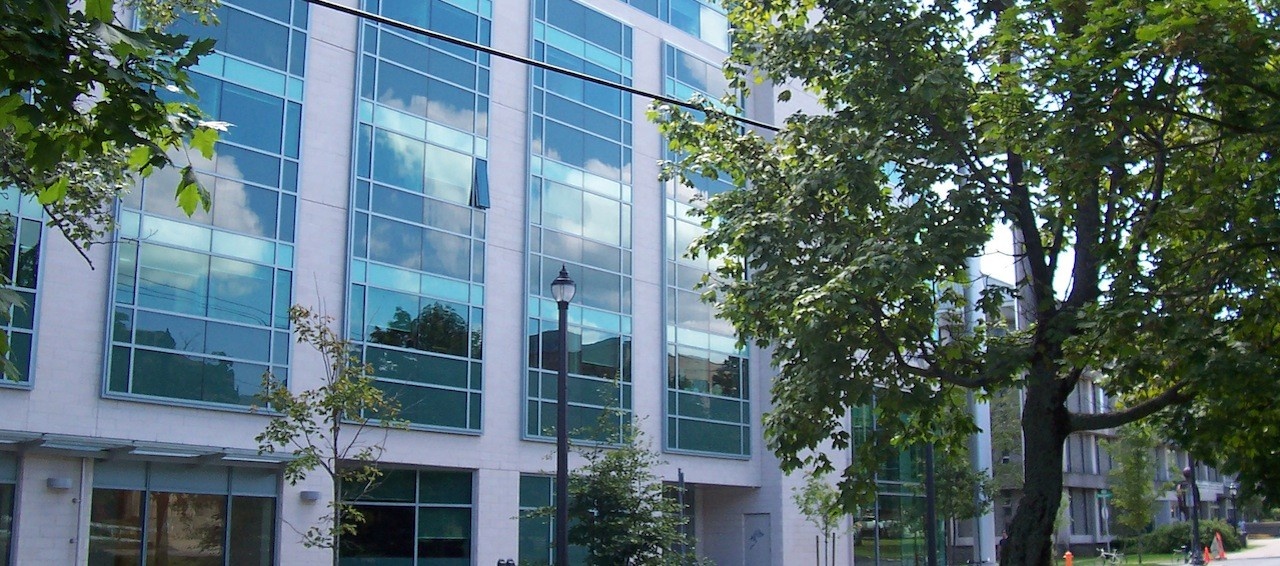News
» Go to news mainDr. Peter Tyedmers and the Role of SRES in Environmental Research

In the ever-evolving field of environmental studies, interdisciplinary research is essential for addressing complex global challenges. Dr. Peter Tyedmers, a professor at the School for Resource and Environmental Studies (SRES), exemplifies this interdisciplinary approach through his extensive work on food systems and their environmental impacts. With a background that spans geology, law, and ecological economics, Dr. Tyedmers' career path highlights the unique blend of expertise that SRES fosters and the significant impact that such a diverse academic environment can have on both research and practical applications.
Dr. Tyedmers began his academic journey with a degree in geology, motivated by a love for the outdoors and an interest in the Earth's evolution. However, his path took a pivotal turn when he realized that his true passion lay in understanding and mitigating human impacts on the environment. This realization led him to law school at UBC, where he focused on natural resources and environmental law. "What I really loved was being outside... I was profoundly motivated to think about and contribute my energy towards reducing the loss of non-human life," he explains.
After completing his law degree, Dr. Tyedmers transitioned to an interdisciplinary PhD program at UBC, initially focusing on biodiversity conservation in Vietnam. However, a course with Dr. Bill Rees, the originator of the ecological footprint concept, shifted his focus to quantifying material and energy flows in production systems. This new direction set the stage for his lifelong research into food systems, particularly seafood, and their environmental impacts.
Dr. Tyedmers' research primarily revolves around understanding food systems and their contributions to global environmental challenges. As he explains, "How we feed ourselves is a major source of most of our global-scale challenges." His work aims to inform strategies for making food systems less impactful, with a particular focus on seafood due to its relatively lower climate impact compared to other animal-based foods. One of his significant projects involved estimating the global fuel use by fishing fleets and understanding the greenhouse gas emissions from seafood production and consumption. "People often overestimate the climate impacts of seafood systems to our collective detriment and avoid them," he notes, highlighting the importance of accurate data in shaping public perception and policy.
Dr. Tyedmers employs various methodologies in his research, including life cycle assessment and modelling. These methods are used to quantify the environmental impacts of different food systems, allowing for a comprehensive analysis of contributions to a range of global-scale challenges, including climate change, eutrophication, energy, other resource use and more. His work has led to surprising insights, such as the relatively small impact of food transport compared to production and the significant role of specific agricultural practices in determining environmental outcomes.
The impact of Dr. Tyedmers' work extends beyond academic publications. His research has influenced policy and industry practices, particularly in regions outside Canada. For example, his collaborative work with Swedish colleagues combined greenhouse gas impact data with nutritional attributes of seafood products, leading to changes in public sector food purchasing decisions. "Absolutely, the work has had traction in various places... we are only ever aware of a subset of our impacts," he says, reflecting on the reach of his research.
SRES has played a crucial role in supporting Dr. Tyedmers' interdisciplinary research and fostering a collaborative environment. "We are a collection of curious and passionate scholars that are looking to understand and limit collective impacts of human choices," he describes. The diverse academic backgrounds of SRES faculty, ranging from engineering to sociology, create a rich environment for addressing complex environmental issues from multiple perspectives.
Dr. Tyedmers also emphasizes the supportive and mission-driven nature of the SRES community. "You don't come into environmental studies just to be a passive observer. We are very interested and motivated to understand and effect positive change," he says. This shared sense of purpose drives the impactful research and educational experiences that SRES offers.
For students considering further studies in environmental fields, Dr. Tyedmers highlights the unique strengths of SRES. "We've been doing this for 50 years... it's a great place to pursue graduate studies related to resource use and environmental impacts," he asserts. The combination of structured learning opportunities through course-based master's programs and more focused inquiry in thesis-based work provides a comprehensive educational experience. SRES graduates are well-prepared to make significant contributions in various sectors, including industry, government, and academia.
Dr. Peter Tyedmers' career is a testament to the power of interdisciplinary background and the supportive environment at SRES. His work on food systems and their environmental impacts not only advances academic understanding but also influences real-world policies and practices. As SRES continues to nurture curious and passionate scholars, it remains a vital institution for shaping the future of sustainability and environmental management.
For more on Dr. Tyedmers, check out his socials: https://www.linkedin.com/in/peter-tyedmers-46293513/?originalSubdomain=ca
Recent News
- Dr. Andrew Medeiros named Fulbright Canada Chair in Arctic Studies
- Simon‑Luc Noël's (MES Graduate) Thesis Blog Entry Live on EIUI Website
- shalan joudry’s (MES Graduate/IDPhD Candidate) Directorial Debut to show at TIFF
- Exploring Environmental Social Science: An Interview with Dr. Kate Sherren
- Dr. Andrew Medeiros: Exploring the Frontiers of Freshwater Ecology
- A Profile of Professor Emeritus Karen Beazley
- Dr. Michelle Adams and the Role of SRES in Environmental Sustainability
- Supporting Excellence: Behind the Scenes at SRES
